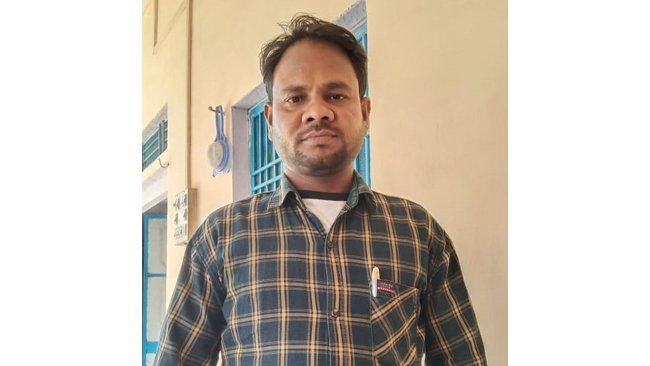
With over 1.4 lakh active COVID-19 cases, as on 25th April 2021, Rajasthan has been dealing with its own share of tragedy during the latest wave of Coronavirus cases in the country. Amid this crisis, 28-year-old Hari Mohan Mahavar, one of the youngest people to be elected Sarpanch of Gajjupura Panchayat in Karauli district, Rajasthan, has an especially pressing agenda – he has been working to ensure that the health and mental well-being of adolescent populations in rural regions are not ignored.
COVID-19 and the associated lockdowns have left many adolescents suffering from feelings of frustration and isolation, according to a study by Population Foundation of India, in Rajasthan, Uttar Pradesh and Bihar. Cut off from their peers and routine essential health care and hygiene services, teenagers across the country have been among the worst affected by the pandemic.
“During the first wave, health services were diverted to pandemic management. We must not reach the same point again where the most vulnerable remain underserved. During the previous lockdown, adolescents had difficulties accessing hygiene products and health services in the villages and we must be better prepared this time,” said Hari Mohan.
He feels strongly about the need to break taboos around menstrual health, especially for the benefit of adolescents. “As a Sarpanch, I have been trying to bust myths and prejudices about menstrual health and hygiene in my community and its importance for the mental and physical health of young girls,” he said, adding, “We need to normalise conversations around the sexual and reproductive health of adolescents as one can see that the number of young girls being forced into early marriages and unwanted pregnancies has risen alarmingly.”
Hari Mohan understands how critical it is to support adolescents during this crucial phase, and has been working tirelessly to create information networks for adolescents in his panchayat, he says, “Adolescents find it hard to share their doubts and concerns with their parents or teachers. I consulted Vinod, a teacher at the local government school, as well as village elders and community leaders to discuss the idea of starting a Youth Resource Centre in the panchayat. We agreed that it was an essential way to provide information and services that adolescents and youth need to make informed choices,” he said.
A Super Sathi Kendra was established in a repurposed Anganwadi building in Khavda village, powered by contributions from the local community and support from Population Foundation of India and its field partner Alwar Mewat Institute of Education and Development. Its monitoring and functioning is supervised by Hari Mohan’s associate, local government school teacher Vinod, and launch of the centre has generated enthusiastic responses from young people and adolescents in the locality.
Hari Mohan is thrilled that their collective efforts have paid off. “I am happy that the Super Sathi Kendra, conceived with support from Population Foundation of India, will now be able to provide access to accurate information and services to adolescents and young people and ensure their overall well-being,” he said.
Divya Santhanam, Senior State Programme Manager, Population Foundation of India said, "We applaud the initiative that Sarpanch Hari Mohan Mahavar has shown in encouraging community to connect with issues that have been traditionally never spoken about. This has not just created a space for open dialogue within family units but also led to the establishment of Super Sathi Kendra which will now facilitate the desired flow of information about adolescent health and well-being. This is a difficult time for everyone but adolescents and youth have been especially affected, with many dropping out of the school during the COVID-19 pandemic. This Super Sathi Kendra is a step toward filling this vacuum and making sure that correct information reaches adolescents and young people.”
With more community leaders coming together to work for adolescents’ health and wellbeing, we can ensure that adolescents and young people are able to fulfil their aspirations.